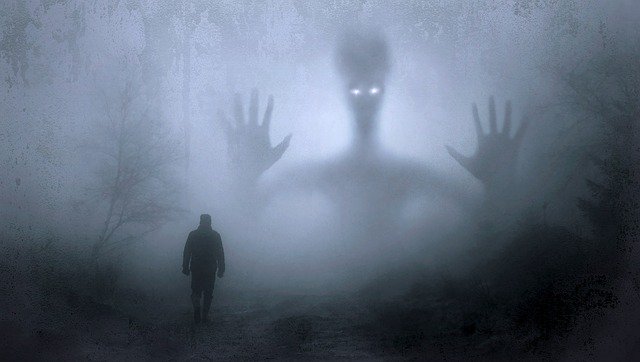 Submitted by Ashes 2 Ashes on
Submitted by Ashes 2 Ashes on

What's in the dark?
Many kids and adults are known to suffer from the fear of darkness or night phobia. Several non-clinical terminologies are used for describing this phobia, namely: Nyctophobia, Scotophobia, Lygophobia as well as Achluophobia.
It is common for children to be irrationally fearful of the dark; their brain perceives frightful images of ‘what would happen’ once the lights are turned off. However, it is also not uncommon to see adults suffering from Achluophobia. Such a condition can greatly impact the sufferer’s day to day life mainly because the individual tends to be depressed, anxious or high strung all the time. Sufferers often refuse to step outside after dark, or sleep alone. The family and loved ones can also suffer owing to one’s Nyctophobia.
Causes of fear of darkness phobia
Experts believe that Nyctophobia generally originates from a traumatic experience in the past.
As a child, one might have been left in the dark as a punishment. Siblings and friends might also be responsible for instilling the fear of darkness.
Movie, TV shows and literature depicting horror, blood, gore, ghosts and other paranormal activities that normally take place in absence of daylight are also often responsible for creating a deeply rooted fear of darkness in a child’s mind.
Symptoms of Achluophobia/ Nyctophobia
Most childhood fears go away as one grows up and matures. However, in some cases, the Achluophobia can persist well into adulthood. Such people tend to keep recalling these past events which they associate with the dark.
Preschoolers might resort to thumb sucking, or bed wetting owing to their fear of night or darkness phobia. S/he might become clingy and refuse to sleep without a nightlight, or insist upon sleeping with an adult/companion.
Often the sleeping and eating habits of children and adults alike might change owing to this fear of darkness phobia. They might experience physical symptoms in the form of:
- Aches and pains
- Rapid shallow breathing
- Heart palpitations
- Shivering and trembling
- Chest pains or feeling like choking
- Nausea and other gastrointestinal distress
- Crying, screaming
- Reduced appetite or conversely overeating or binge eating
Psychological symptoms of the fear of darkness include:
- Thoughts of death, dying-often associated with Thanatophobia
- Fear of being attacked by ‘boogeymen’, ghosts, and monsters; Checking and rechecking under the bed or in closets
- Refusing to sleep alone or refusing to step out of the house after sunset. Trying to stay up all night, waking up several times.
- Feeling dread, feeling like running away at the thought of facing darkness
The fear of darkness phobia can affect one’s sleep quality. This can lead to stress. Adults might start showing lack of productivity at work. Hence, depression and other mental and physical disorders are common in Nyctophobic individuals. All these can negatively impact one’s quality of life.
Overcoming Nyctophobia
Adults suffering from Achluophobia often realize that their fear is irrational. Yet they feel powerless to overcome it and dread the arrival of nighttime all through the day.
Thankfully, there is hope, and many therapies can help overcome this phobia. Professional therapists can help get to the bottom of one’s fear of darkness and so can Hypnotherapy.
Apart from these, one can also consider self help techniques. These include gradually exposing oneself to one’s object of fear and writing down irrational thoughts and changing them to rational ones. Meditation and positive visualization are other expert recommended self help methods to overcome Nyctophobia.
Neuro-lingustic programming or NLP as well as behavior and cognitive behavior therapies are other effective techniques used for overcoming Achluophobia/Nyctophobia. All of these help the individual manage his anxiety response when faced with the stimulus, in this case darkness or night. Medicines and drugs can also be taken to calm anxiety and reduce depression. However, these are not long term solutions for Nyctophobia and one must be aware of their possible side effects.
Jacob Olsen
- 564 reads